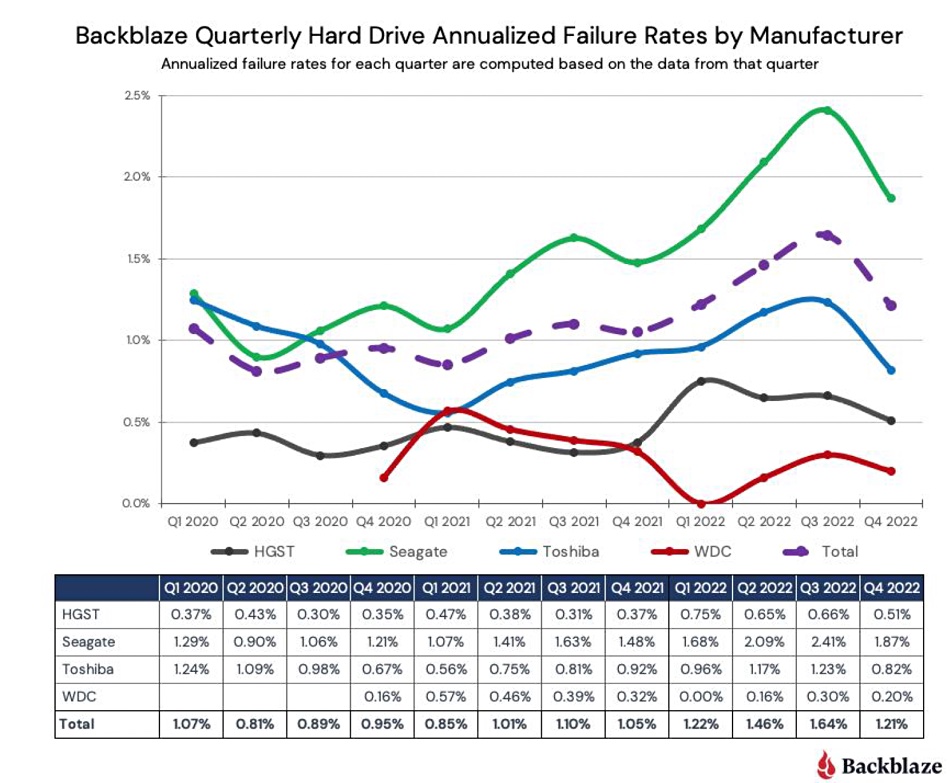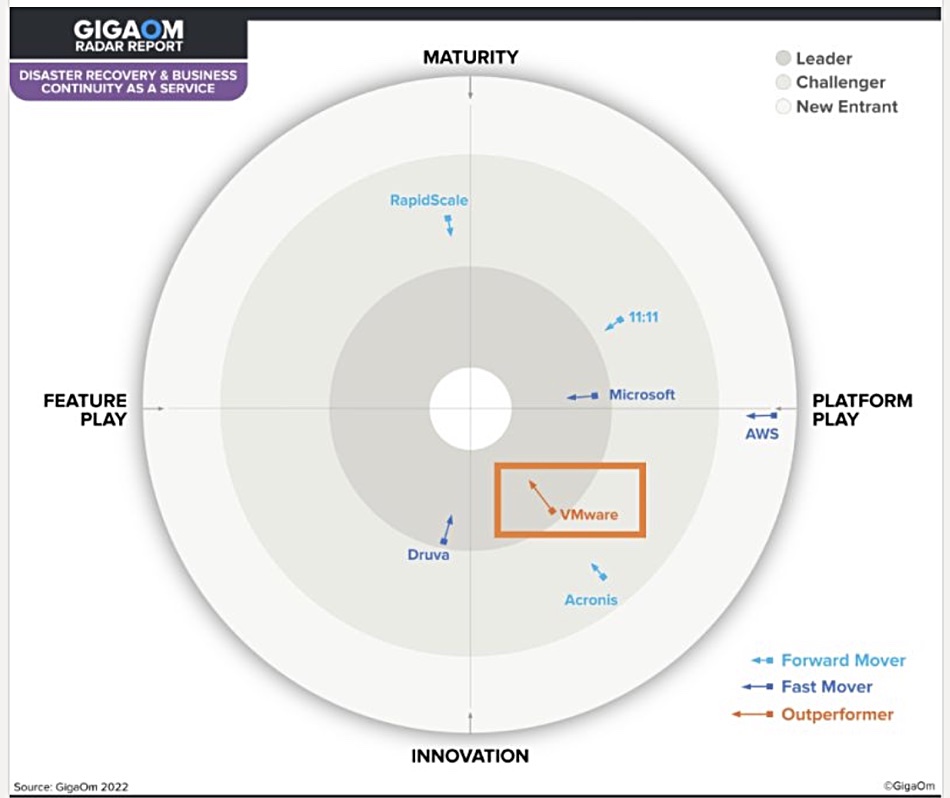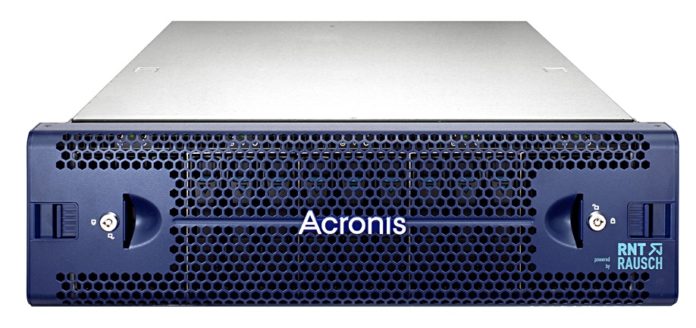Cyber security and backup storage supplier Acronis has announced a three-year partnership with London’s oldest professional football club, Fulham FC. Acronis will provide Fulham with a suite of cyber protection offerings and EveryCloud.co.uk will support Acronis as its “Strategic #Cyberfit delivery partner” providing its cyber protection solutions and cloud backup service to the club.
…
Open source data integrator Airbyte has launched a Free Connector Program that provides free use of any data pipeline on Airbyte Cloud that uses alpha or beta connectors – giving organizations easy access to all of their data. Airbyte defines generally available connector reliability as at least 99 percent synchronization success rate with more than 40 users, along with other criteria. Beta connectors still on average have a 93 percent sync success rate and alpha connectors a 90 percent sync success rate. There are now more than 300 connectors available, which means the Airbyte platform has the most connectors in the industry.
…
Enterprise data intelligence supplier Alation has said three more universities are participating in its philanthropic initiative, The Data Intelligence Project. They are the University of Arkansas at Little Rock, the University of Cincinnati in Ohio, and the University of Stirling in Scotland. More than 420 students have used Alation in their courses to date, with this year’s global cohort providing real-world experience to hundreds of new students via Alation.
…
Astera Labs has expanded its Cloud-Scale Interop Lab to provide interoperability testing between its Leo Memory Connectivity Platform and a growing ecosystem of leading CXL-based CPUs, memory modules, and operating systems.
…
Cloud storage and backup service supplier Backblaze has released yet another HDD reliability report. This one contains the first chart we have seen showing disk drive failure rates per manufacturer:

Seagate has the least reliable drives, but Backblaze finds they are worthwhile purchases because their total cost of ownership is lower than that of more reliable drives with higher prices. This point was discussed in Backlaze’s previous HDD reliability report.
…
Commvault has published its formal Q3 2023 (calendar Q4 2022) results confirming the preliminary numbers we published earlier in January: a four percent revenue decline to $195.1 million and a net loss of $310,000. Commvault is selling its HQ in Tinton Falls, New Jersey, for $40 million, and will then lease a portion of the premises.
Sanjay Mirchandani, president and CEO, said: “We remain confident that customers will continue to recognize Commvault’s products and services as a critical component to keep their data safe and simplify their journey to the cloud. As we navigate through current macro conditions, we are committed to our philosophy of responsible growth.”
…
Data streaming supplier Confluent has pre-released Q4 results with an eight percent workforce reduction due to economic headwinds leading to longer deal cycles and more deal checking. William Blair analyst Jason Ader then said it reported solid results, with revenue ($169 million; growth of 41 percent) and non-GAAP EPS (growth of 53 percent) above the high end of management’s guidance. Confluent Cloud growth of 102 percent was nicely ahead of expectations as the ROI argument for switching from self-managing open source Kafka to leveraging the fully managed Confluent Cloud solution continues to resonate with customers. He said investor concerns will be around the modestly lower revenue guidance for 2023 (30 percent growth) as well as the announced 8 percent reduction in force, which both highlight the company’s pivot toward profitability (with the timeline for non-GAAP operating break even brought forward a full year).
…
Analyst house DCIG recently refreshed its high-end storage array research and will publish the “2023-24 DCIG TOP 5 High-End Storage Arrays” report in February. The report will show that these arrays have tended to add enhanced cyber-resilience, immutable snapshots, secure vault on array for rapid recovery, ransomware anomaly detection, dynamic app performance optimization and optimal data placement for performance and cost. Other advances include cloud integration, provision of object storage, Storage as a Service (STaaS) and sustainability enhancements and reporting. Contact DCIG for more information.
…
Lakehouse shipper Dremio is fully available on the AWS Marketplace Vendor Insights – which happens to be supported on the Dremio Cloud – allowing AWS Marketplace customers to accelerate the vendor selection process with a repository of responses to many of their questions.
…
A Gartner report – “How to Prepare for Ransomware Attacks” – identifies the proliferation of ransomware campaigns that target organizations resulting “in double or triple extortion tactics.” The impact that these attacks have on organizations has increased to the point where some have gone out of business and, in the case of healthcare, lives have been put at risk. The report cautions: “Even if the ransom is paid, there is no guarantee that your data will be recovered. The encrypted files can be unrecoverable due to data corruption during the encryption process.” Get a copy here.
…
A diagram from GigaOm evaluating desaster recovery suppliers shows VMware in the lead with Microsoft, Druva, 11:11, RapidScale and Acronis following:

…

Real-time stream processor Hazelcast has hired Jakki Geiger as chief marketing officer (CMO). Hazelcast is coming off a third straight year of double-digit growth and is now widely deployed among the Global 2000, including 24 of the largest banks and six of the largest telcos. Geiger served as CMO of Pyramid Analytics and previously held senior leadership roles at Informatica, Reltio and others. As CMO, Geiger’s goal is to help Hazelcast ramp growth by improving the marketing organization’s efficiencies and highlighting the platform’s capabilities to enable real-time applications.
…
Nakivo has made the latest 10.8 version of NAKIVO Backup & Replication available for download, with expanded MSP services and enhanced cloud backup capabilities. It adds support for vSphere 8 and S3-compatible object storage backup repositories, either in the public cloud or on-premises. They can be made immutable for ransomware protection. Get a datasheet here.
…
Oracle Cloud Infrastructure (OCI) File Storage now supports cloud-native asynchronous replication for disaster recovery. For example, an Oracle E-Business Suite (EBS) customer with primary operations in availability domain 1 in Phoenix, AZ, can choose to have their backup or recovery site be in availability domain 2 of Ashburn, VA. File Storage replication uses snapshots and clones as some of the building blocks for its replication and disaster recovery architecture. A blog tells you more.
…
Scale-out filer Qumulo‘s Azure Native Qumulo Scalable File Service (ANQSFS) provides seamless integration between Qumulo and Azure and enables Qumulo’s distributed file system as a native service on Azure. You can subscribe to it on the Azure Marketplace and customers can deploy Qumulo in less than 15 minutes. Check out this blog for more.
…
Semarchy, a master data management and data integration supplier, has announced data-driven workflows for its xDM module. With these workflows, customers can collaboratively manage, transform and orchestrate raw data into “single source of truth” golden records for any business use case. Workflows join its unified data platform, enhancing the data management experience in a single, no-code system that can be deployed anywhere.
…
We asked Quest Software about database replication types – block vs file. Senior product manager Rick Schiller said: “These are two different types of technologies. Block level replication happens at the file system level and is typically used for backups or file level snapshots. Asynchronous database replication such as SharePlex captures database changes in real time and applies them elsewhere. It can be used for entire databases, specific objects, and even specific data within those objects. The system to which it is writing can be open for user access (read and/or write). It can move those data between different platforms, which requires some level of data transformation.”
…
Korean fabber SK hynix says it’s developed the world’s fastest mobile DRAM, LPDDR5T (Low Power Double Data Rate 5 Turbo), and provided sample products to customers. It operates at a data rate of 9.6Gbit/sec – 13 percent faster than the previous generation LPDDR5X unveiled in November 2022. LPDDR5X is an upgraded seventh-generation (5X) product prior to the development of the 8th generation LPDDR6. SK hynix provided customers with samples of a 16GB multi-chip package, which can process 77GB of data per second.
…
Backup supplier Storware has entered a technology partnership with Nutanix to enable backup and disaster recovery. It offers incremental backup of AHV VMs with CBT/CRT (Changed-Region Tracking); backup consistency mechanisms for applications running on AHV VMs; and backup and recovery for Nutanix Volume Groups and Nutanix Files (with CRT-based incremental backups). It also features enhanced ransomware protection with immutable backup and isolayer (air-gap) technology. The backup stored on the storage infrastructure is unavailable from an external connection or the internet.
…
Universal processor developer Tachyum has detailed a storage setup suiting its Prodigy CPU. A downloadable white paper includes both HDD and SSD-based options. Dr Radoslav Danilak, founder and CEO, said: “By offering cutting-edge solutions for both HDDs and SSDs, Tachyum’s solutions are future-proofed from the market dynamics in the storage industry as SSDs and HDDs converge to price parity.” The suggested storage subsystems for Prodigy adopt Ceph and a storage cluster approach:
- HDD modular clusters, each comprised of a 2U server and a 5U JBOD for a total of 7U, with seven of the 7U clusters fitting into a 52U rack storing 11.8 PB of capacity using 20TB drives;
- SSD modular clusters, comprised of 1U or 2U storage servers with SATA or NVMe drives; 24 2U servers can fit into a 52U rack storing 17.97PB of capacity using 15.36TB SATA SSDs.
Prodigy supports a wide range of popular file systems running natively as a client including NFS, CIFS/Samba, S3, ZFS, GFS2, and PNFS.
…
Weebit Nano and R&D partner CEA-Leti analyzed the environmental impact of Weebit’s Resistive Random Access Memory (ReRAM/RRAM) technology compared to Magnetoresistive Random Access Memory (MRAM). The results were positive for Weebit’s Oxide-based ReRAM (OxRAM), which was jointly developed with Leti, showing the environmental impact of ReRAM is much lower than that of MRAM.







